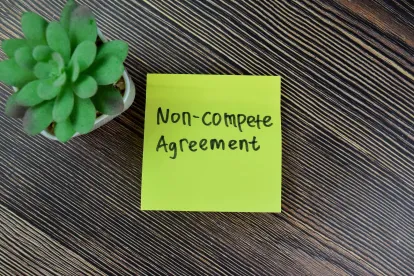On May 30, 2023, General Counsel for the National Labor Relations Board (“NLRB”), Jennifer Abruzzo, issued a Memorandum titled “Non-Compete Agreements that Violate the National Labor Relations Act.” In the Memorandum, Ms. Abruzzo sets forth her position and view that the “proffer, maintenance, and enforcement of [non-compete agreements] violate Section 8(a)(1) of the Act” except in limited circumstances.
Section 8(a)(1) makes it illegal for employers to interfere or restrain employee’s Section 7 rights. Section 7 of the National Labor Relations Act (“Act”) gives employees, other than executives, managers, supervisors, or independent contractors, the right to form, join, or assist labor organizations, to bargain collectively, and to engage in “other concerted activities...or other mutual aid or protection.”
Non-competition agreements or restrictive covenants preventing unfair competition prohibit employees, after the termination of employment with their current employer, from working for certain companies, accepting certain types of jobs, or engaging in certain types of work that would be considered competitive with the products or services offered by the current employer. Ms. Abruzzo states in her Memorandum that a non-compete agreement violates Section 8(a)(1) of the Act because it “reasonably tends to chill employees in the exercise of Section 7 rights.” Specifically, by placing limitations on where employees can work following termination of employment with the current employer, non-compete agreements interfere with employees’ ability to:
- Concertedly threaten to resign to demand better working conditions. Non-compete agreements discourage such threats because non-competes restrict or limit the employees’ access to other employment opportunities.
- Carry out concerted threats to resign or otherwise concertedly resigning to secure improved working conditions.
- Concertedly seek or accept employment with a local competitor to obtain better working conditions.
- Solicit their co-workers to work for a local competitor as part of a broader course of protected concerted activity.
- Seek employment to specifically engage in protected activity with other workers at an employer’s workplace. In this regard, non-competes effectively limit employees from the kind of mobility required to be able to engage in particular forms of protected activity.
Ms. Abruzzo maintains that the proffer, maintenance and enforcement of non-competes are violative of Section 8(a)(1) “unless the provision is narrowly tailored to special circumstances justifying the infringement on employee rights.” In this circumstance, “a desire to avoid competition from a former employee is not a legitimate business interest that could support a special circumstances defense.”
On the other hand, the legitimate business interest in protecting proprietary or trade secret information can be addressed by a narrowly tailored workplace agreement to protect those interests. Further, non-compete provisions that limit restrictions to individuals’ managerial or ownership interests in a competing business or true independent-contractor relationships may not be violative of the Act. Ms. Abruzzo also indicated that “there may be circumstances in which a narrowly tailored non-compete agreement’s infringement on employee rights is justified by special circumstances.”
Ms. Abruzzo concluded the Memorandum by reiterating her office’s commitment to the interagency approach to restrictions on the exercise of employee rights, including the job mobility of workers implicated by non-compete agreements and directing Regions to seek enforcement in alignment with the Memorandum.
Proactive Steps for Employers
In light of the NLRB’s position that the proffer, maintenance, and enforcement of non-compete agreements may infringe on employees’ Section 7 rights, employers may want to consider the following actions:
- Understand that not all workers require a non-compete agreement and agreements should be individualized for each worker’s role;
- Limit non-compete agreement requirements to only executives, managers, supervisors, or independent contractors;
- Strengthen language of non-disclosure of confidential information and non-solicitation of customer clauses to increase likelihood of enforceability;
- Ensure restrictive covenants are reasonably tailored to protect legitimate business interests and reasonable as to time and geographic scope;
- Review restrictive covenant language for compliance with current state laws; and
- Consult state laws, and other applicable authorities for restrictions on non-compete agreements for certain categories of workers.
Employers may find it useful to confer with experienced labor and employment counsel in order to maximize compliance and reduce the potential for legal exposure.




 />i
/>i

